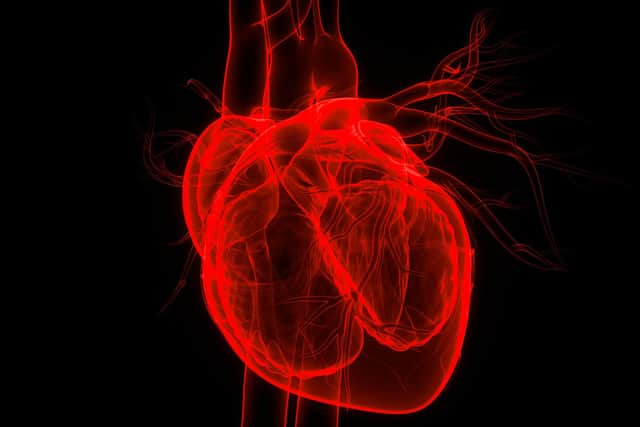University of Edinburgh team looking to prevent and reduce heart failure by ‘training’ blood vessel cells to repair muscle
The groundbreaking research, from the Edinburgh-based team in the Centre for Cardiovascular Science, aims to reduce the number of cells that die following a heart attack and promote regeneration in a bid to prevent further failure.
Dr Mairi Brittan hopes that identifying and understanding the changes in the genes in cells following an attack, will help clinicians to find treatments that promote more blood vessel growth to salvage muscle and reduce the risk of further failure.
Advertisement
Hide AdAdvertisement
Hide AdDr Brittan, along with her team, studies hearts of patients who have suffered an attack to evaluate cell response.


She said: “The main condition we're trying to target is heart failure. This occurs when the heart isn't able to pump blood around the body, and it most commonly occurs in patients who've had an earlier attack.
“The good news is that survival in patients who've had a heart attack is on the increase, but that does mean the number of patients who are going on to progress to develop heart failure is increasing.
“When you have a heart attack, there's a massive immediate loss of cells and this cell death continues to die over time, leading to heart failure, which currently has no cure.
“Our research aims to understand how we can reduce the number of cells that are continuing to die.”
The project, which is funded by the British Heart Foundation with TCS London Marathon, will be published globally, allowing researchers with an interest in heart disease to study other individual genes and broaden the depth of understanding to what actually occurs in the cells in the heart during and after an attack.
And it is hoped the study could lead to a number of different treatments under the umbrella of regenerative medicines.
Dr Brittan said: “Once we publish this research, this is going to provide a resource for clinicians and it will show potential biomarkers which you could then study a little bit further and try to work out if these people are at risk of either having a heart attack or progressing to develop heart failure.
Advertisement
Hide AdAdvertisement
Hide Ad“Unlike some other tissues in the body, the adult human heart doesn't have the potential to regenerate. So once you've had a heart attack, the damage will be there and you'll be left with scarring and fibrosis.
“But what we do know from some of the earlier studies is that some of these cells do switch on signals that show that they're attempting to regenerate, they do respond to the injury, they do start to regrow. But the natural ability of the cells isn't good enough to preserve the heart muscle, so it does continue to die.
“What we're thinking is that if we can work out what these regenerative signals are and tap into how those signals are helpful for the heart, then that could provide a therapy.”
The partnership between the British Heart Foundation and the TSC London Marathon is aiming to raise £3m for research into regenerative medicine that could one day find a cure for heart failure.
Comments
Want to join the conversation? Please or to comment on this article.
